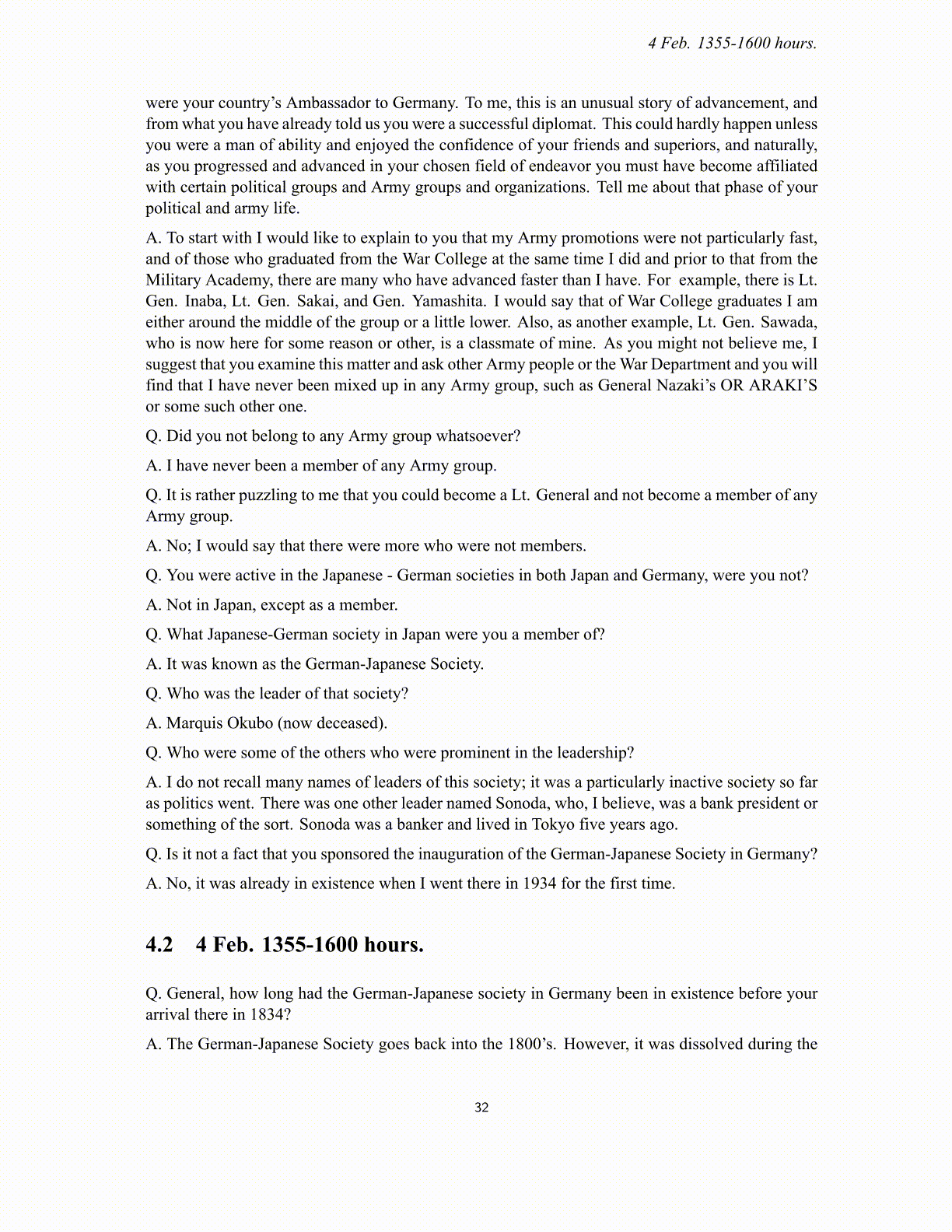
4 Feb. 1355-1600 hours. were your country’s Ambassador to Germany. To me, this is an unusual story of advancement, and from what you have already told us you were a successful diplomat. This could hardly happen unless you were a man of ability and enjoyed the confidence of your friends and superiors, and naturally, as you progressed and advanced in your chosen field of endeavor you must have become affiliated with certain political groups and Army groups and organizations. Tell me about that phase of your political and army life. A. To start with I would like to explain to you that my Army promotions were not particularly fast, and of those who graduated from the War College at the same time I did and prior to that from the Military Academy, there are many who have advanced faster than I have. For example, there is Lt. Gen. Inaba, Lt. Gen. Sakai, and Gen. Yamashita. I would say that of War College graduates I am either around the middle of the group or a little lower. Also, as another example, Lt. Gen. Sawada, who is now here for some reason or other, is a classmate of mine. As you might not believe me, I suggest that you examine this matter and ask other Army people or the War Department and you will find that I have never been mixed up in any Army group, such as General Nazaki’s OR ARAKI’S or some such other one. Q. Did you not belong to any Army group whatsoever? A. I have never been a member of any Army group. Q. It is rather puzzling to me that you could become a Lt. General and not become a member of any Army group. A. No; I would say that there were more who were not members. Q. You were active in the Japanese - German societies in both Japan and Germany, were you not? A. Not in Japan, except as a member. Q. What Japanese-German society in Japan were you a member of? A. It was known as the German-Japanese Society. Q. Who was the leader of that society? A. Marquis Okubo (now deceased). Q. Who were some of the others who were prominent in the leadership? A. I do not recall many names of leaders of this society; it was a particularly inactive society so far as politics went. There was one other leader named Sonoda, who, I believe, was a bank president or something of the sort. Sonoda was a banker and lived in Tokyo five years ago. Q. Is it not a fact that you sponsored the inauguration of the German-Japanese Society in Germany? A. No, it was already in existence when I went there in 1934 for the first time. 4.2 4 Feb. 1355-1600 hours. Q. General, how long had the German-Japanese society in Germany been in existence before your arrival there in 1834? A. The German-Japanese Society goes back into the 1800’s. However, it was dissolved during the 32